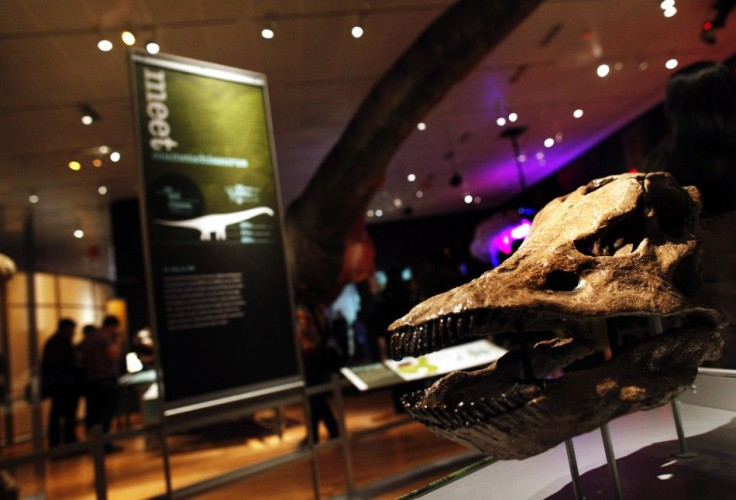Giant Ancient Dinosaur's 500 Kg Thigh Bone Dug Up In France

It has never been a better time to be a dinosaur enthusiast -- across the world fossil evidence of the gigantic thunder reptiles the roamed the face of Earth in an ancient era are being dug out. The latest evidence that has been dug out of the earth in France is a 500-kg thigh bone that is believed to be of a giant sauropod.
Experts say the herbivorous creature roamed our planet about 140 million years ago. The sauropods had very long necks, four very thick-pillar like legs and a small head. This dinosaur became widespread in the late Jurassic period, along with other similar creatures like the Brachiosaurus, Brontosaurus and Diplodocus.
Volunteers from the National Museum of Natural History discovered the gigantic, two-meter long femur bone nestled in a thick layer of clay. It was discovered alongside a giant pelvis bone hidden within the same layer. Ronan Allain, a paleontologist at the National History Museum described the find as a majory discovery. Allain said they were especially amazed by the state of preservation of the femur. “These are animals that probably weighed 40 to 50 tons,” he said, adding that since 2010, palaeontologists have uncovered about 7,500 bones from the site.
Allain said they can see the insertions of muscles and tendons as well as scars. “This is a very rare find as large pieces tend to collapse on themselves, to fragment,” he explained. With this latest find, palaeontologists are working to piece together a complete sauropod sketelon.
© Copyright IBTimes 2024. All rights reserved.





















